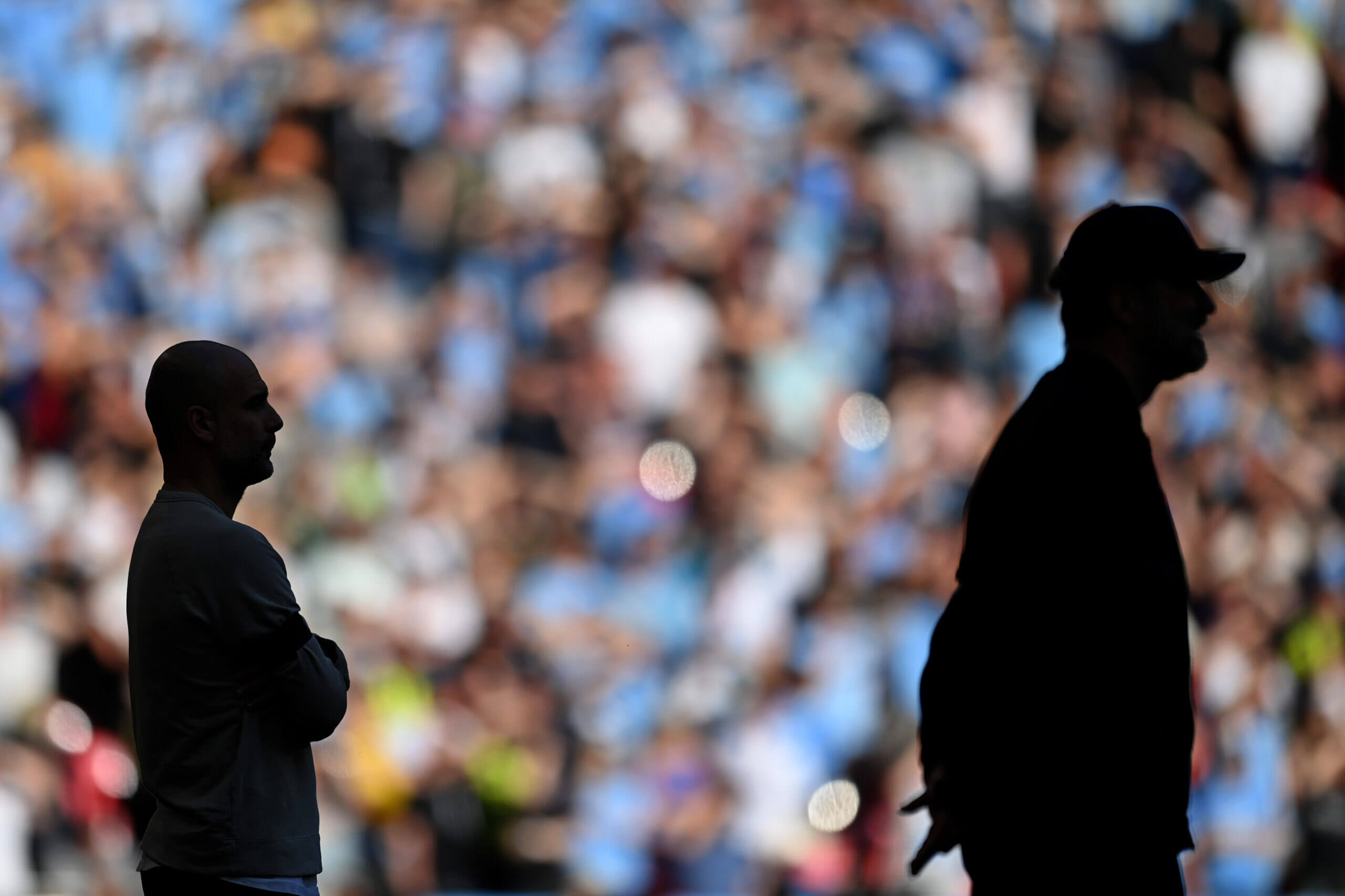It’s a matter of personal taste whether the rivalry between Pep Guardiola and Jurgen Klopp has been the best managerial battle of football’s modern era — some might prefer a little more acrimony, a little more hostility.
But it’s surely been the most multifaceted rivalry, the most tactically fascinating rivalry, and has probably produced the most genuinely top-quality football matches. Here are 10 reasons Guardiola and Klopp’s meetings as managers of Manchester City and Liverpool will stand the test of time, and be remembered fondly for many years.
Outright success
Both managers have won all four major trophies on offer to English sides: the Champions League, the Premier League title, the FA Cup and the League Cup. We’ve come to take this for granted and, in the modern era, it’s certainly easier than ever before for the big clubs to win multiple competitions.
But there has never been another managerial meeting in English football between two managers who have won everything at one club. Bob Paisley and Brian Clough won the European Cup, for example, but never the FA Cup, while Arsene Wenger missed out on the Champions League (and League Cup).
Only one other manager has won all four at an English club — Sir Alex Ferguson — so Guardiola vs Klopp is unique in these terms.
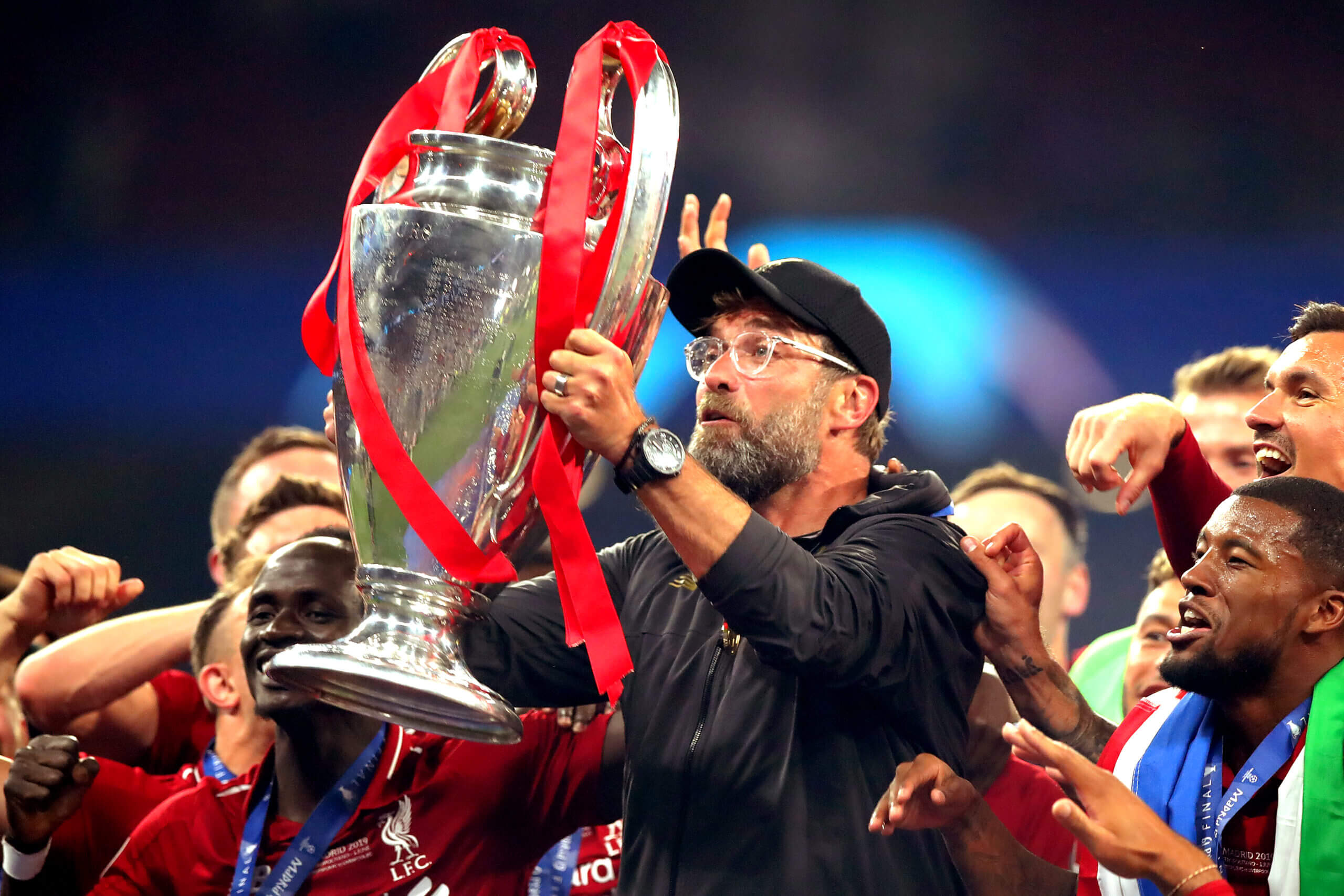
Klopp celebrates Liverpool’s Champions League triumph in 2019 (Alexander Hassenstein – UEFA/UEFA via Getty Images)
National identity
In a sense, the Premier League has become the European Super League in recent years, attracting the world’s best managers and becoming, more than any other league, a truly global division.
Guardiola and Klopp don’t simply hail from different nations, they hail from the nations that had exerted the most influence on the game over the previous decade. Guardiola was the coach who most epitomised Spain’s obsession with possession football, while Klopp was the poster boy for the German focus on pressing. Their meetings, particularly in the early days, were about two competing footballing ideologies.
You don’t always get this. For example, the animosity between Ferguson and Kenny Dalglish during the mid-1990s was a major feature of Manchester United and Blackburn Rovers’ brief rivalry — but it was less of a battle of styles, considering this was two Scots largely playing 4-4-2 and relying on flying wingers.
Learning from one another
There has been an evolution in the tactical battle between Klopp and Guardiola since their first meeting in football, when it felt like they represented completely different concepts. In recent years, their styles have converged.
Perhaps that became most apparent in the midfield zone, where Guardiola came to rely on a player, Ilkay Gundogan, who rose to prominence for Klopp’s Dortmund. At roughly the same time, Klopp decided he wanted to incorporate more passing quality in his side, and therefore signed Thiago — a player who has, alas, struggled to make a consistent impact for Liverpool.
After a couple of recent meetings, both managers have noted that Liverpool have become more patient, and City more direct. In part, that’s because they have influenced each other’s styles.
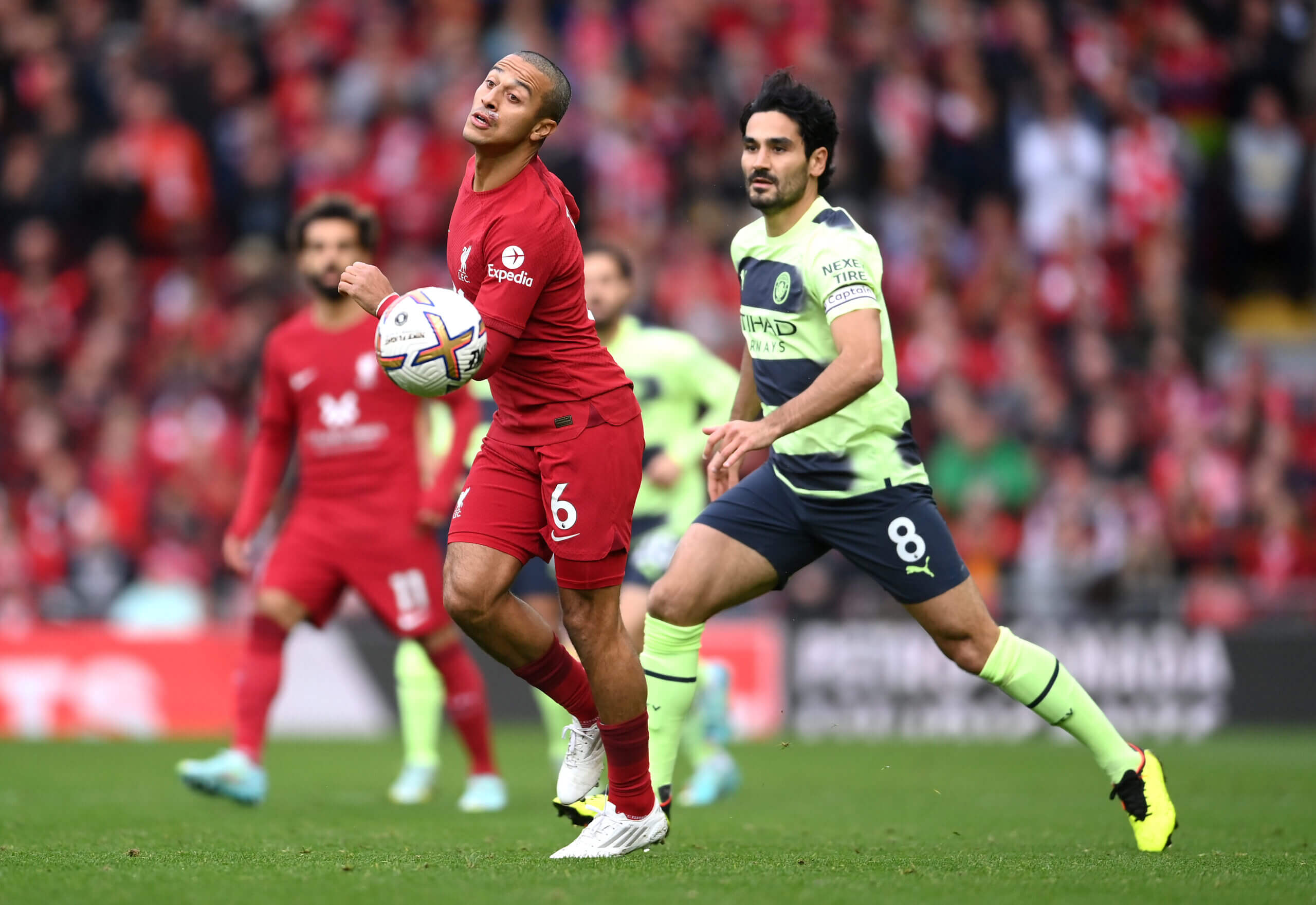
Thiago and Gundogan have played under both managers (Laurence Griffiths/Getty Images)
Two battlegrounds
Unusually, Guardiola and Klopp’s rivalry has operated at the top two clubs in two major leagues. Their first encounters, in the days when they were in charge of Bayern and Dortmund respectively, were a little uneven — Bayern were busy buying up Dortmund’s key players — but they were tactically intriguing.
The first time he faced a Klopp side, Guardiola played midfielder/defender Javi Martinez as a makeshift striker, using his height to win aerial balls, as Bayern played long to beat Dortmund’s press. In a way, elements of that approach have been obvious in the last couple of seasons, when City have played unusually long to Erling Haaland, a more natural striker.
In England, their meetings have been much more even. Including matches from Germany and England, Klopp has the edge over Guardiola — 12 wins to 11.
Longevity
No other coach has been managing their side in the top four divisions of English football for as long as these two. Granted, Harrogate Town’s Simon Weaver was appointed back in May 2009, and has been charge ever since, but the first decade of that spell was spent outside the English Football League.
Coventry City’s Mark Robins is the next longest-serving boss — seven years this week — and Mikel Arteta’s four-year period is the next-longest spell spent entirely in the Premier League.
Very few managers spent eight years in charge of the same club these days. It’s unlikely anyone will ever face one another 49 times as manager of the same two clubs, as Ferguson and Wenger once did. These two recording 22 meetings might be as good as it gets.
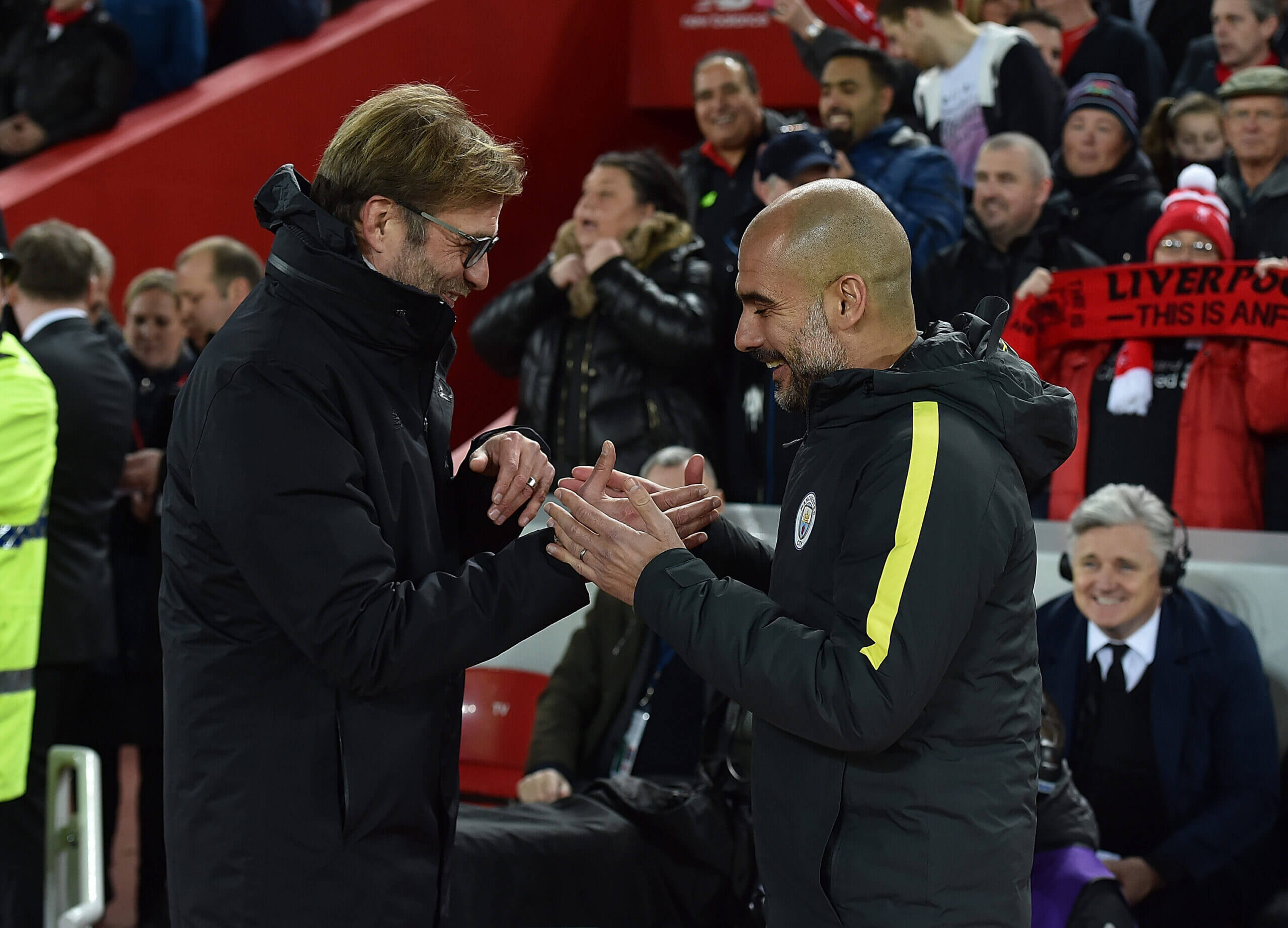
(Andrew Powell/Liverpool FC via Getty Images)
Shaping English football
Both managers have had a major impact on English football in a tactical sense.
Guardiola, in particular, has helped reinvent the game and encouraged others to believe in technical footballers, playing out from the back and fielding multiple playmakers together. Look at England’s midfield at World Cup 2018, for example, and Gareth Southgate’s boldness in fielding Dele Alli and Jesse Lingard as No 8s was surely at least partly inspired by Guardiola proving that ‘free No 8s’ in a three-man midfield could work. Southgate’s holding player in that system, Jordan Henderson, had only started to play that role under Klopp at Liverpool.

GO DEEPER
Playing out from the back: Why teams do it and is it worth the risk?
In more recent times, away at North Macedonia, England fielded Trent Alexander-Arnold on the right of a three-man midfield, with Rico Lewis drifting inside from left-back to central midfield. Alexander-Arnold could only be fielded in that position as he was operating partly for Liverpool in that role — which Klopp had adopted following Guardiola’s success of moving full-backs inside, with Lewis being an obvious example of a player who was developed specifically to play that role.
Here were two academy graduates from either side, providing England with tactical intelligence and variety.
Liverpool v Manchester City could help decide the Premier League title race – and The Athletic is analysing every angle that matters.
Open, end-to-end matches
The 21 meetings between Klopp’s Liverpool and Guardiola’s Manchester City have produced 3.2 goals per game, well above the average goals-per-game rate in the Premier League over that period.
There has barely been a dull game between them, and only one 0-0. That came back in 2018-19, and even that game was enlivened by Riyad Mahrez’s late penalty miss — which, for much of the season, seemed like it could decide the title fight. In the end, City produced an excellent late run to win the title by a single point.
Other long-running managerial battles have produced their fair share of stinkers. When Jose Mourinho and Rafael Benitez repeatedly clashed during their three years together as Chelsea and Liverpool managers in the mid-2000s, across various competitions, both sides scored in only four of their 15 matches. That tactical battle was entirely conservative, about minimising mistakes.
This tactical match-up has been about risk and reward, about trusting technique. There have been scores of 5-0, 4-3, 4-0, 1-4, 3-2, 2-3 and, when they were going head to head for the title in 2021-22, a pair of thrilling 2-2s.
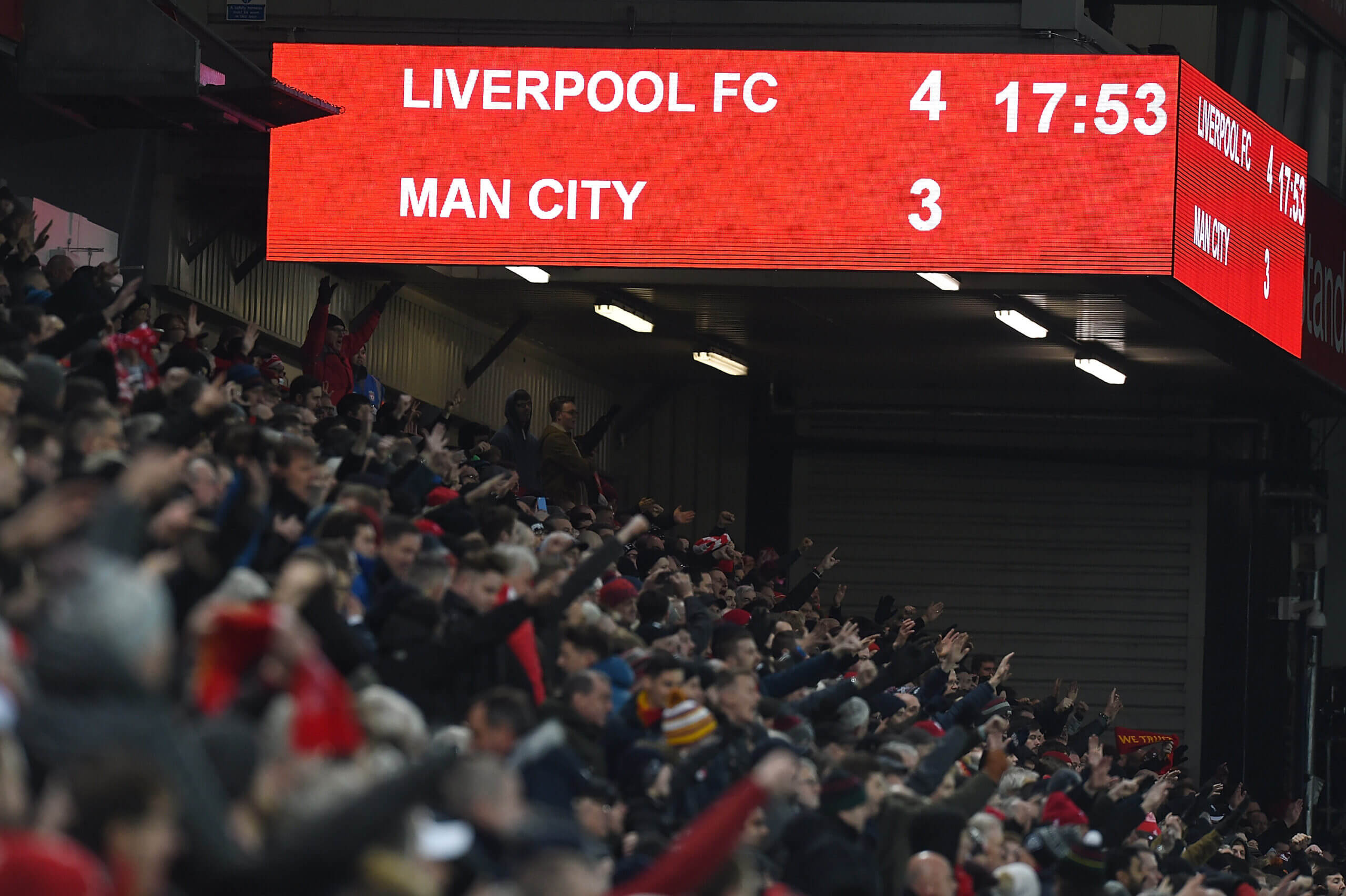
(John Powell/Liverpool FC via Getty Images)
European dominance
This hasn’t merely been a rivalry which has dominated English football: it has transcended the Premier League. At times, these have been the best two sides in Europe, and their two-legged Champions League tie back in 2017-18 was truly memorable, with Klopp’s side racing into a 3-0 first-leg lead at Anfield, and then surviving an early scare at the Etihad to win the return game 2-1.
They’ve never quite been first and second in UEFA’s coefficient rankings — the closest they came was in 2022, when they were ranked joint-2nd, with Bayern Munich leading the way — but often, they’ve been the sides others have wanted to avoid, with City being the perennial title winners in Europe’s best league and Liverpool offering comparable quality with a more intimidating atmosphere on European nights.
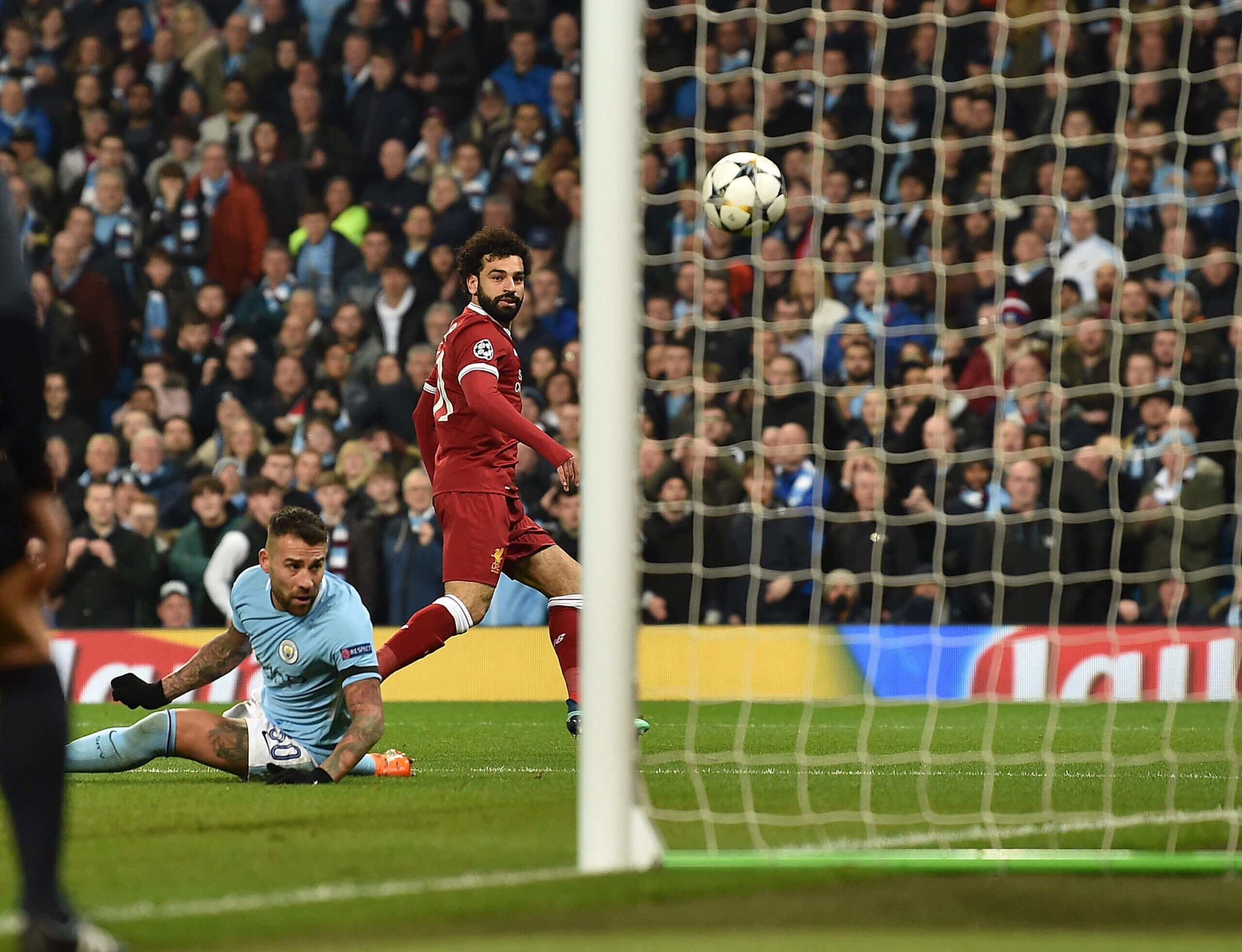
(Andrew Powell/Liverpool FC via Getty Images)
Respect
A matter of taste, this one. Some prefer genuine hostility between managers, but this is the post-mind games era. Whereas managers once jousted primarily in press conferences, these days they’re more focused on the tactical battle. No one gains much when things get heated between managers — it tends to drag the quality of football down.
It’s also questionable whether football needs more nastiness. Once, these things were largely confined to the press conferences and the 90 minutes. Now, when things spill over into threats from fans on social media, it’s probably a good thing for everyone’s sanity that the relationship between Klopp and Guardiola has been almost entirely cordial.
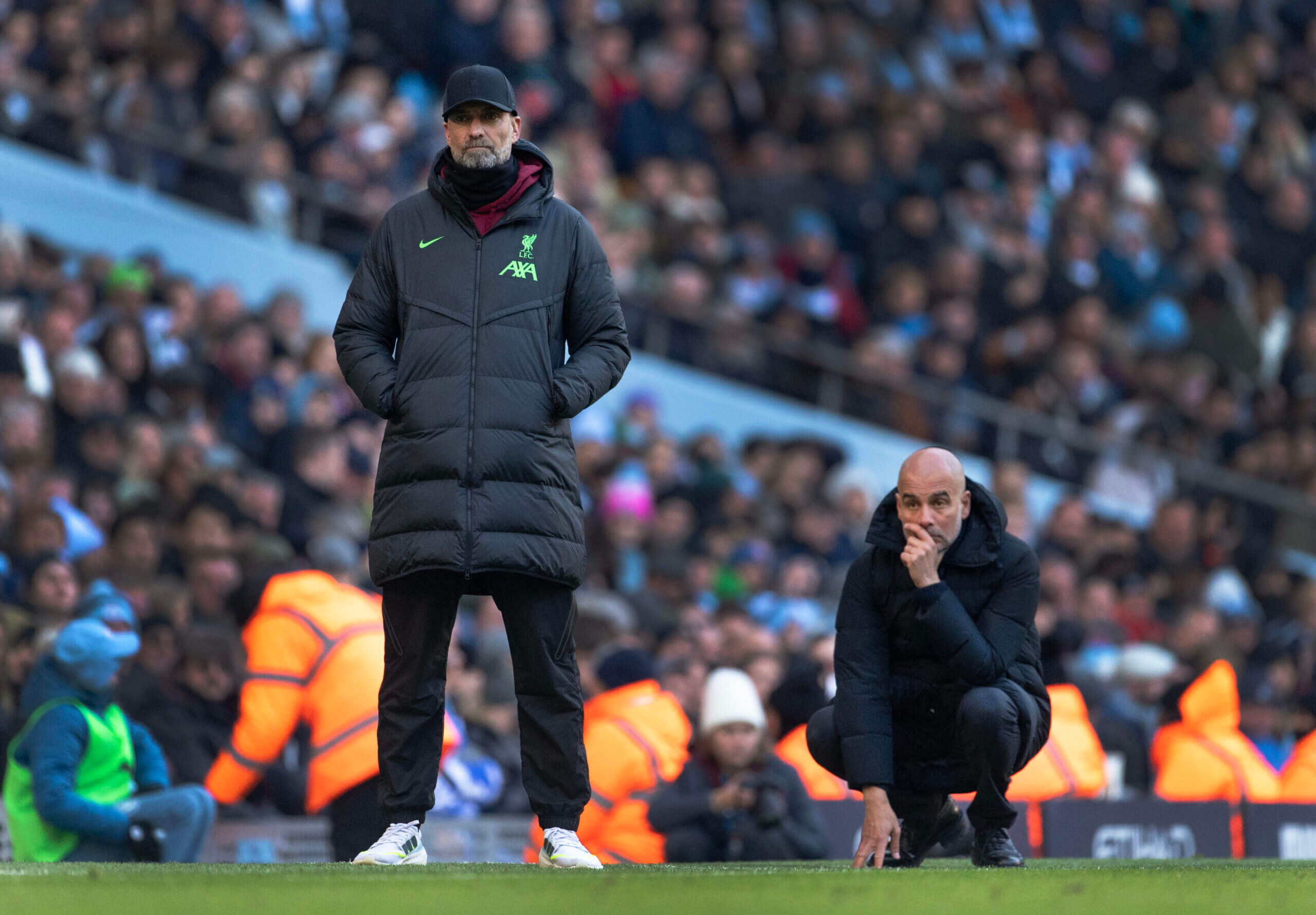
(Visionhaus/Getty Images)
Symbolising their clubs
Guardiola vs Klopp has unarguably been the major individual ‘clash’ in meetings between these dominant City and Liverpool sides — which hasn’t always been the case in other rivalries.
For example, during the peak Ferguson/Wenger years, the debate was largely about Roy Keane versus Patrick Vieira. When Guardiola clashed with Jose Mourinho in Spain, it was about Lionel Messi versus Cristiano Ronaldo. When Mourinho duelled with Benitez in England, it was Frank Lampard versus Steven Gerrard.
It’s difficult to find a comparable debate for these two sides — perhaps aside from the two Brazilian goalkeepers. Since the sides play in different ways, there’s a general acceptance that Liverpool’s full-backs and wide players have been stronger, while City offer more playmaking quality from midfield. The focus has, therefore, been on how the managers have used their areas of strength.
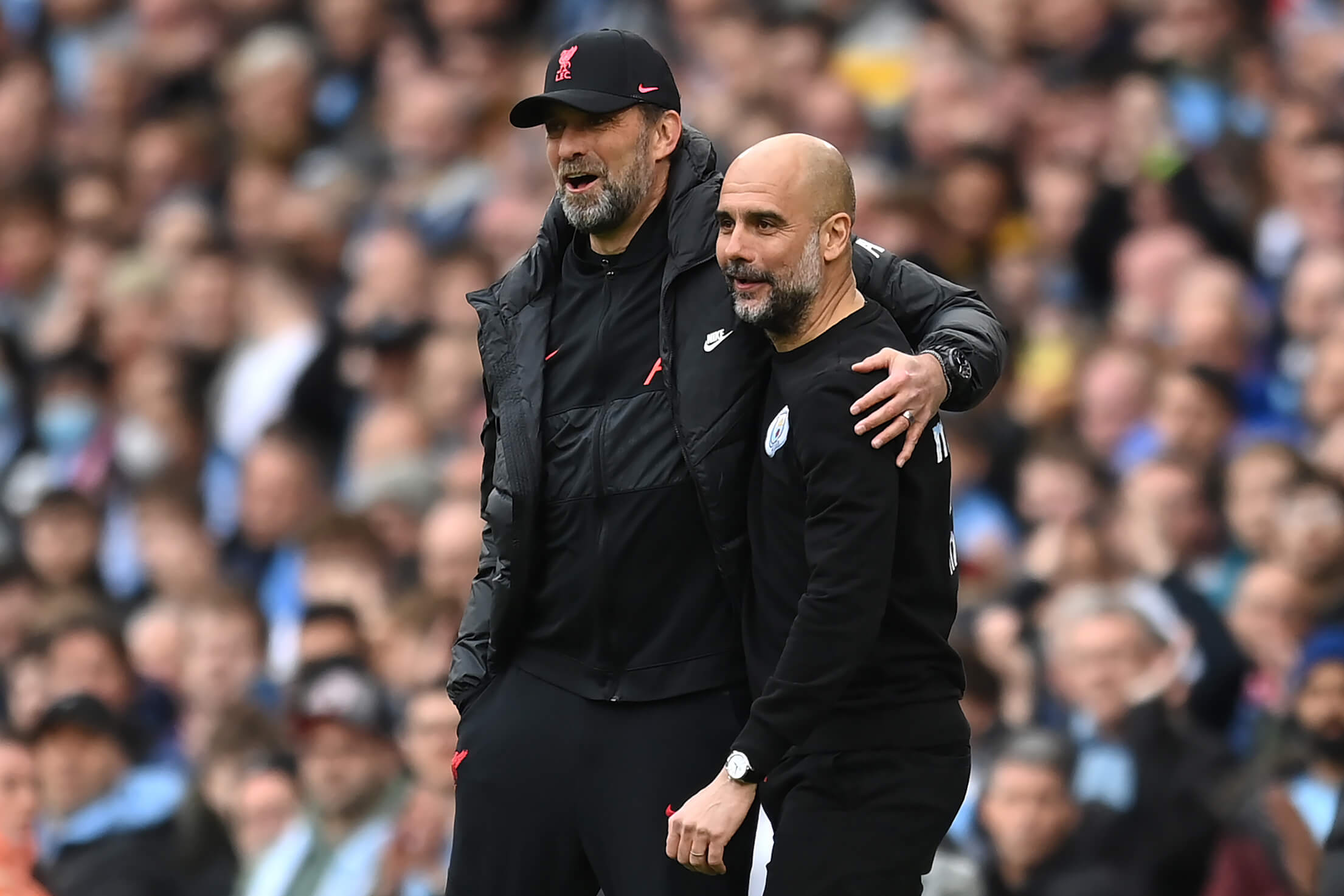
(Michael Regan/Getty Images)
Perhaps the only thing lacking from Guardiola’s City versus Klopp’s Liverpool has been a major final. They’ve met at various stages of the FA Cup, League Cup and the Champions League, but never in the final itself.
But that remains a possibility: both clubs are still in the FA Cup. A 23rd meeting at Wembley in late May, the weekend after the title race has been settled, would be a fantastic way for a brilliant era in English football to come to an end.
(Top photo: Michael Regan – The FA/The FA via Getty Images)
